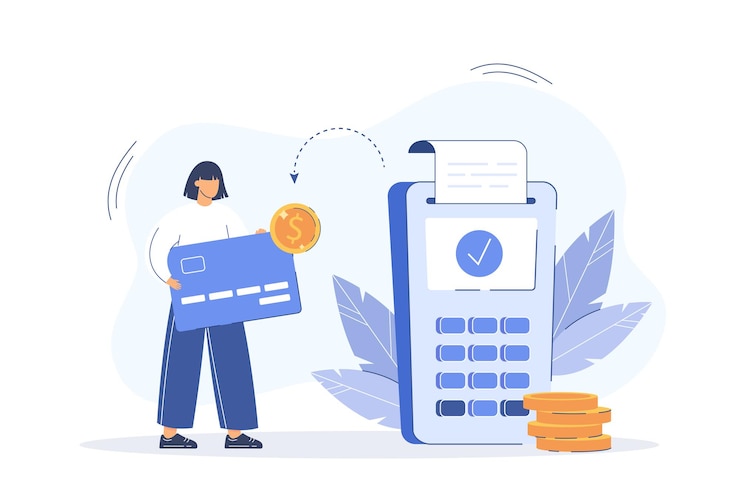Every company must keep track of its revenues and expenses.
It is to ensure that the company’s expansion, well-being, and financial stability properly benefit all stakeholders.
Accounting software and point-of-sale (POS) systems are two of the most important financial management tools.
In a restaurant or retail setting, a POS system keeps track of sales and items.
An accounting program tracks bank account information, including deposits, withdrawals, interest earned and paid, and loans provided.

Let’s discuss the Point of Sale system
The point of sale is called the POS. It is the location of your company’s sales.
A POS system enables business owners to track all sales and accept client payments.
Their setup is determined by the needs of the business owners.
It could be a physical store, an internet business, or even both.
The cash registers in the store employ the Point of Sale (POS) system.
The POS system serves as the entirety of the digital procedure in the current situation.
You may examine your customers and traffic even when you are not at work.
Just the correct POS system app, a device, and an internet connection are required.
Select Product for Free Demo Now!
Let’s discuss the Accounting software
Accounting software allows you to manage all of your company’s bookkeeping and accounting tasks from a single app or program.
The accounting program allows you to save and access your company’s accounting, financial information, and transactions.
You may manage accounts payable, accounts receivable, invoicing, billing, estimating, balance sheet, trial balance, other transactions, financial reporting, payroll, bookkeeping, and everything else you have to do with accounting and bookkeeping with the help of accounting software.
Point of Sale VS Accounting software
Business management software, such as accounting software, and point of sale systems have some similarities and both are used in different markets by different companies, according to their needs.
The Point of Sales (POS) system will typically and best serve B2C businesses. Businesses and retail establishments can successfully manage walk-in consumers by using a POS system. They primarily sell things directly to customers and run brick-and-mortar businesses.
This does not imply that B2B uses POS systems less frequently than B2C or vice versa; because users of the POS system include B2B companies.
Additionally, Wholesale distribution organizations that need to operate with cash and have physical locations will use the POS system.
The usage of accounting software by small and also large organizations are very essential.
Accounting software controls and documents a company’s ongoing financial activities.
1. Inventory management –
POS systems can manage inventory more effectively with barcodes, but most accounting software does not support this feature.
The POS’s inventory management module will oversee total visibility and also the accountability of all inventory processes at the store level at all times.
From inventory transfers, store shortages, ordering and reordering, importing goods, price control, and more.
2. Inventory management and VAT enable software-
Most POS systems do not contain the reports and tools necessary to file the VAT.
However, the assets are heavily utilized for the VAT filing process with the aid of accounting software.
3. Expense management
With the help of accounting software, you may create, maintain, adjust, and also stick to budgets.
As you track your revenue over time, create a sufficient budget that is in line with your company’s objectives.
Additionally, accounting software gives precise real-time data, easy budgeting procedures, thorough reporting, and lower costs.
You can align your clients’ demands with an efficient budgeting tool or software, which also prevents overspending.
However, the POS system does not provide expense management. also, the POS system can not track the profit and expenses.
4. Accounting services and financial statements –
Trial balancing accounts payable and receivable, general ledger balancing, journal entries, bank reconciliations, chart of accounts, and accounts payable and also receivable all can manage with the accounting software which is not possible with the single piece POS.
5. Customer-facing Display Point of Sale
The customer-facing display is the primary feature of POS, it is not possible with accounting software.
A screen that confronts the consumer at the billing area displays information about the order quantity, the products requested, the total cost, and the type of delivery.
Additionally, Customers have a tremendous deal of transparency in the transaction thanks to the screens that are in front of them.
The POS software provided by Peniel Technology, Dubai, guarantees a quick and simple charging process with ongoing data synchronization.
Leading retail businesses in Dubai adopted the best POS software in the world.
Our products give standard functionalities in addition to being a very effective POS software UAE.
Additionally, these functionalities will allow you to manage your store conveniently & successfully.
The management of sales, purchases, inventories, dealers, staff, and also customers are among the essential capabilities.
Here are some core features of POS
- Sales monitoring and reporting
- Customization
- Cloud Solutions
- Employee management
- Multiple payment methods
